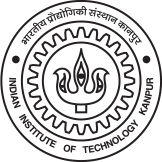
Prerequisites:
3-0-0-9
Course Contents
Overview of defects in Materials: (point, line, planar and volume defects) and their classification. Overview of plastic deformation mechanisms. Point defects: interaction and distributions, statistical thermodynamics, role in diffusion and deformation. Basic understanding of dislocations using physical and computer models: the Volterra cut, Burgers vector and the Burgers circuit, the line vector, edge, screw and mixed locations, Role of dislocations in weakening the crystal and in plasticity. Elasticity theory of dislocations: Stress, strain and displacement fields and energy of a dislocation, Forces on dislocations (including image force) Interaction between dislocations, Core of a dislocation. Motion of dislocations: The Peierls stress, role of the core structure, interaction of dislocations with other defects (including yield point phenomenon); kinks; jogs; cross slip; climb, Temperature and strain rate dependence of flow stress, Dislocation dynamics and the tensile stress strain curve. Dislocations in FCC Metals: Partial dislocations (Shockley and Frank partials) stacking faults, Thompson's tetrahedron, Lomer Cotrell sessile dislocation. Overview of dislocations in other crystal structures: HCP metals, BCC metals, ionic crystals, super lattices, covalent crystals. Origin and multiplication of dislocations: dislocations in freshly grown crystals, nucleation of dislocations, multiplication of dislocations (by Frank Read sources, cross slip and climb), Grain boundary sources, Recovery and recrystallization. Geometrically/structurally necessary dislocations: low angle & general grain boundaries, indentation, interfacial dislocations, Twinning including incoherent twins. Specific examples of role of dislocations and case studies: Dislocations in nano crystals, The Hall Petch relation and the Inverse Hall Petch Effect (IHPE), Dislocations in epitaxial systems, Severe Plastic deformation, Role of dislocations in Creep, Fatigue and Fracture.
Topics
Current Course Information
Instructor(s):
Number of sections:
Tutors for each section:
Schedule for Lectures:
Schedule for Tutorial:
Schedule for Labs:



